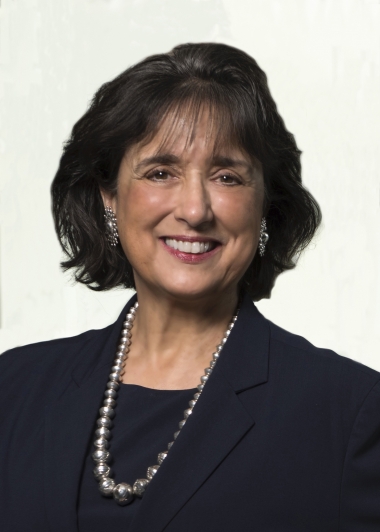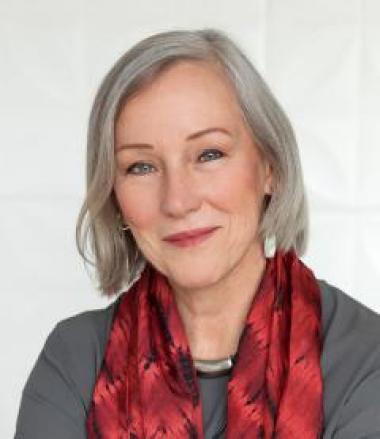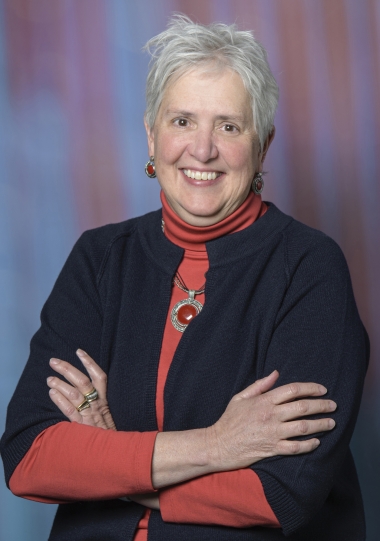The network, established with funding from the National Institutes of Health, has the the ultimate goal of developing more effective brain-aging treatments and interventions targeted to the individual.
The University of Arizona has been awarded a five-year $60 million grant from the National Institutes of Health to create and lead a Precision Aging Network that could transform the way we think about the aging brain.
The network will bring together researchers from across the country to better understand how and why people experience brain aging differently, with the ultimate goal of developing more effective treatments and interventions targeted to the individual.

Carol Barnes
Led by neuroscientist Carol Barnes, a UArizona Regents Professor of psychology, neurology and neuroscience and a national leader in brain aging research, the program was inspired by the field of precision medicine, which takes into account a person’s genetics, lifestyle, environment and other factors to customize care rather than relying on a one-size-fits-all approach.
“You’re going to age differently from me, and I’m going to age differently from someone else. We all need a prescription that fits us individually if we are to optimize our cognitive health,” said Barnes, who is also a member of the university’s BIO5 Institute and director of the UArizona Evelyn F. McKnight Brain Institute. “We’re interested in exploring more deeply: What is a normative aging brain? What are the fundamentals? Because we can’t understand the diseases that happen in an aging brain until we understand the fundamentals of what is a generally normative aging brain.”
Researchers from the University of Arizona, Arizona State University, Emory University, Johns Hopkins University, Baylor College of Medicine, the Georgia Institute of Technology, the University of Miami and the Phoenix-based Translational Genomics Research Institute, or TGen, an affiliate of City of Hope, will be part of the UArizona-led network. The program will embark on four national-scale research studies designed to better understand the neural mechanisms that account for optimal brain performance in older age and those that underlie age-related cognitive impairment and disorders such as Alzheimer’s disease.

“The Precision Aging Network leverages decades of scientific insights from the University of Arizona team and the Evelyn F. McKnight Brain Institute, which created a launchpad for this next stage of exciting and impactful science,” said Regents Professor of pharmacology and BIO5 Institute member Roberta Diaz Brinton, director of the University of Arizona Health Sciences Center for Innovation in Brain Science and one of the Precision Aging Network’s four associate directors. “Outcomes of Precision Aging Network research are critical for developing precision medicine approaches to prevent age-associated neurodegenerative diseases, most especially Alzheimer’s.”
“The University of Arizona is a world leader in research on aging, and this NIH award advances our work at the forefront of this very important field,” said University of Arizona President Robert C. Robbins. “Carol Barnes and our other incredible faculty in this area have the potential to dramatically change how we approach challenges such as age-related cognitive impairment and Alzheimer’s disease and ultimately improve people’s lives.”
An estimated 50 million people worldwide are living with some form of dementia, and that number is expected to double every 20 years as people live longer, Barnes said.

A great many more older adults experience what is often referred to as “normal” age-related cognitive decline. While this might not be as life-altering as a disorder like Alzheimer’s disease, it still can significantly impact a person’s quality of life, said Lee Ryan, head of the UArizona Department of Psychology and another of the Precision Aging Network’s associate directors.
“Even for someone who doesn’t have Alzheimer’s disease, they could experience sufficient changes in their cognitive functioning that really interfere with their quality of life and their ability to live independently,” Ryan said.
The bottom line: Humans’ cognitive life span does not at this time match their physical life span. UArizona researchers want to help close that gap by taking a precision medicine approach similar to what’s been seen in cancer research in recent years.

“Like tumor development, brain health depends on the interaction of multiple variables and genes over time,” said UArizona physiology professor Meredith Hay, a BIO5 Institute member and another of the network’s associate directors. “Some of these variables drive brain health and some are only passengers. The overarching hypothesis of the Precision Aging Network is that risk factors driving brain function and dysfunction will vary from individual to individual. By identifying the key brain health drivers for an individual, we can ultimately create personalized intervention strategies to better align cognitive health span with human life span.”
The Precision Aging Network supports a University of Arizona Health Sciences strategic priority to establish the University of Arizona as the global leader in healthy aging.
“As we seek to influence the critical factors that affect the health of an aging population, the Precision Aging Network will be a key component of the research and real-world applications we are pursuing,” said Michael D. Dake, senior vice president for the University of Arizona Health Sciences. “The many innovations in healthy aging that our cross-disciplinary teams are working on ultimately will contribute to better health and wellness for all.”
Bringing Diversity to Brain Research
The Precision Aging Network will collect information on a diverse population of American adults of different ages, ethnicities and backgrounds.
It will do this, in part, by leveraging an existing tool that Ryan has been using in an ongoing research project in partnership with TGen researcher Matt Huentelman, who is also an associate director of the Precision Aging Network. Their MindCrowd research project, launched in 2013 to better understand human memory and risk factors for Alzheimer’s disease, recruits large numbers of participants online.
The Precision Aging Network will use an expanded version of the MindCrowd online portal to help recruit 350,000 study participants age 18 and older and gather information on their cognition, demographics, health and lifestyle variables.
Some of those individuals will then be invited to participate in more in-depth, in-person studies at one of four sites: UArizona in Tucson, Emory University in Atlanta, Johns Hopkins University in Baltimore and the University of Miami in Coral Gables, Florida.
Recruiting participants from such diverse regions of the country will ensure large numbers of Hispanic, Black and other racial and ethnic minorities are represented – an important goal of the study since those populations have been historically underrepresented in aging literature, Ryan said.
“A very small proportion of the research on aging has focused on racial, ethnic and cultural differences in the aging process, so we think that’s an absolutely critical component,” Ryan said.
“The Precision Aging Network enables us to expand our breadth of research related to aging and neurodegenerative diseases, including Alzheimer’s, with a focus on decreasing disparities in our understanding of aging and ultimately creating more equitable outcomes,” said Elizabeth “Betsy” Cantwell, senior vice president for research and innovation.
By Alexis Blue, University Communications
Source: https://news.arizona.edu/story/uarizona-awarded-60-million-lead-precision-aging-network
